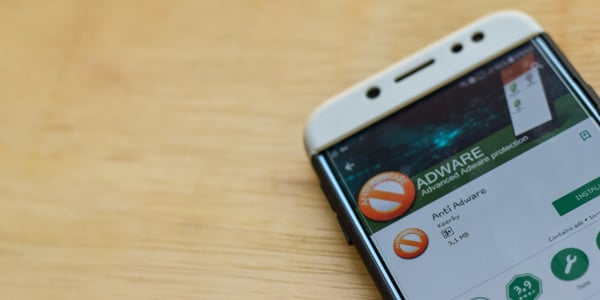
This week's review of ad fraud and quality in the digital advertising space.


Business Insider reported that "ad-tech companies are racing to keep up with OTT's growing fraud and brand-safety issues," including Pixalate. "Part of the problem is that tracking OTT apps covers more than a dozen app stores, said Amy King, vice president of product marketing at Pixalate," wrote Business Insider. "The firm has specifically focused on solving server-side ad insertion, a process that stitches ads together in content before it plays to remove buffering."

"Hundreds of apps on the official Google Play Store were recently found to contain a form of adware that rendered devices 'nearly unusable,' experts say," reported Newsweek. "BeiTaAd is a covert plugin that 'forcibly displays ads on the user's lock screen [and] triggers video and audio advertisements even while the phone is asleep,' wrote security intelligence engineer Kristina Balaam. It was discovered to be lurking inside 238 separate mobile applications," Newsweek added.

eMarketer has increased its U.S. display programmatic ad spend forecast for 2019. The research outfit now says that "nearly 85% of U.S. display ad spending will be programmatic this year." eMarketer junior analyst Nazmul Islam explains that they increased the forecast because of strong performances from the major walled gardens and Connected TV.
![]()
"As the industry continues its effort to clean up the supply chain, in-app is next in line to adopt ads.txt," wrote ironSource's Amit Halperin for App Developer Magazine. The article asks: "So who is most likely to take up the mantle of responsibility for pushing the adoption of app-ads.txt?" Possibilities include app developers, the app stores, and ad-monetization platforms — but each option comes with pros and cons.
*By entering your email address and clicking Subscribe, you are agreeing to our Terms of Use and Privacy Policy.
These Stories on Weekly Recaps
*By entering your email address and clicking Subscribe, you are agreeing to our Terms of Use and Privacy Policy.

Disclaimer: The content of this page reflects Pixalate’s opinions with respect to the factors that Pixalate believes can be useful to the digital media industry. Any proprietary data shared is grounded in Pixalate’s proprietary technology and analytics, which Pixalate is continuously evaluating and updating. Any references to outside sources should not be construed as endorsements. Pixalate’s opinions are just that - opinion, not facts or guarantees.
Per the MRC, “'Fraud' is not intended to represent fraud as defined in various laws, statutes and ordinances or as conventionally used in U.S. Court or other legal proceedings, but rather a custom definition strictly for advertising measurement purposes. Also per the MRC, “‘Invalid Traffic’ is defined generally as traffic that does not meet certain ad serving quality or completeness criteria, or otherwise does not represent legitimate ad traffic that should be included in measurement counts. Among the reasons why ad traffic may be deemed invalid is it is a result of non-human traffic (spiders, bots, etc.), or activity designed to produce fraudulent traffic.”

